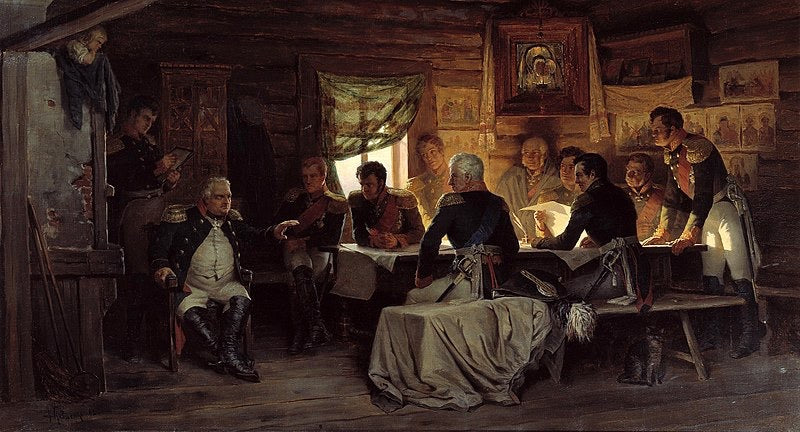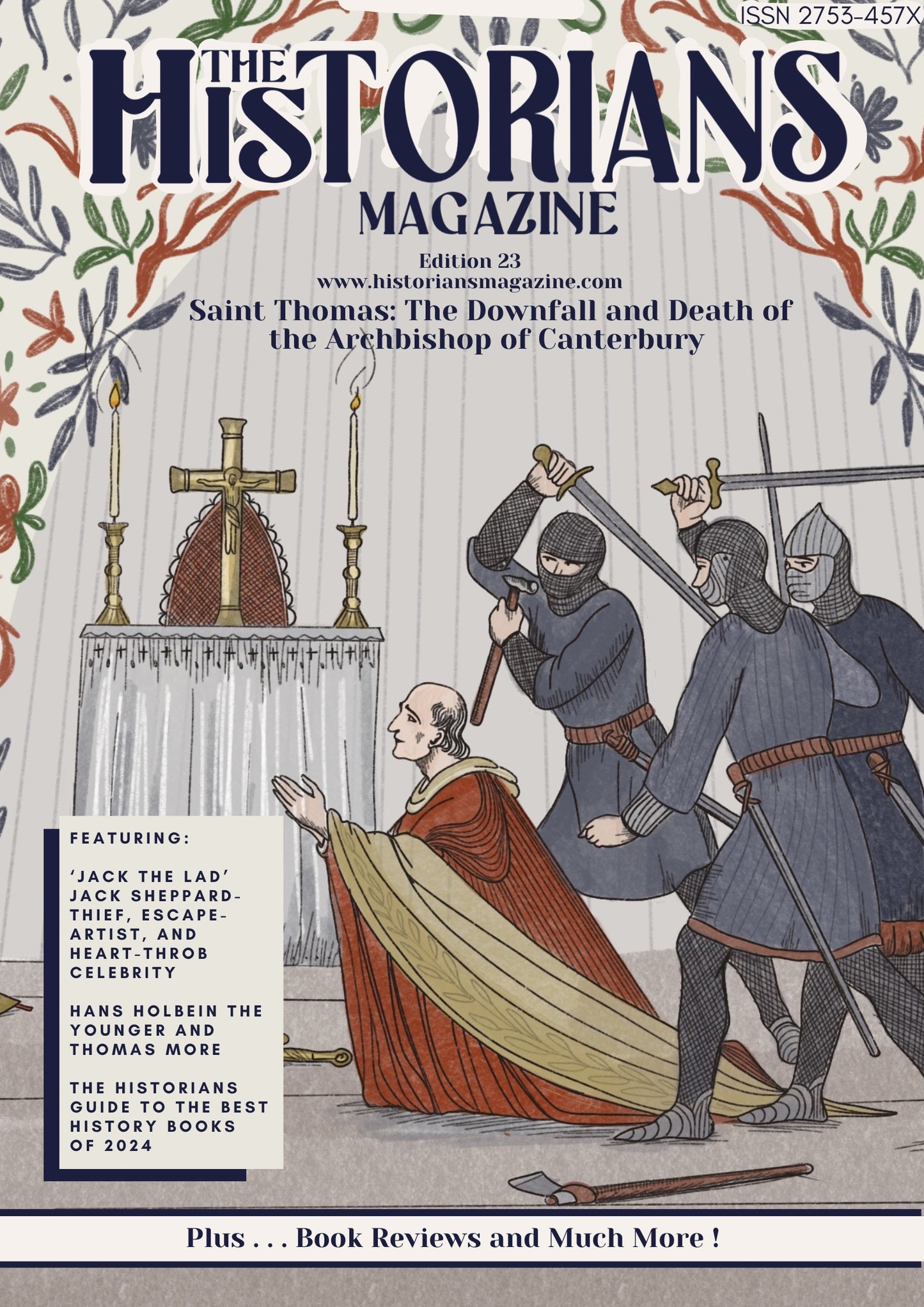
The Decision to Cede Moscow to Napoleon Aida Kane
Share
An Unexpected Sacrifice
The decision to cede Moscow came on September 13 1812, in the small village of Fili, where Commander-in-Chief, Mikhail Kutuzov, held a war council with his senior staff. After consulting with his team, he decided to concede without fighting. He boldly declared, "To save Russia, we need an army; to save the army we must give up the idea of defending Moscow. Moscow is not the whole Russia. Better to lose it than the army and Russia." Kutuzov’s aide-de-camp, Prince Galitzin, reported that Kutuzov later said, "I consider this retreat to be providential, for it will preserve our army. Napoleon is like an impetuous torrent, but Moscow will be the sponge which will absorb him." Mikhail Kutuzov was an old warrior. He was 67 years old and one-eyed like Hannibal. The great military leader Alexander Suvorov spoke of Galitzin, saying, "Artful, artful! Intelligent, intelligent! No one could deceive him." He had the make-up of a commander and was a keen strategist. Throughout his military career, he was renowned for his perspicacity. The army adored him, regarding him with great respect. They obeyed him without question, blindly following his orders to cede Moscow. His Generals, on the other hand, thought that the decision to sacrifice Moscow was pure madness. This controversial decision provoked a deep hatred for Kutuzov within the governor of Moscow, Count Fyodor Rostopchin.
Top Image: Council at Fili
Inflamed or In Flames
Catherine the Great called him "Fyo the Mad". Rostopchin became Governor of Moscow in May 1811. Catherine Palovna, the younger sister of Tsar Alexander I, was mainly responsible for his appointment. Like the governor, she never accepted the alliance formed between Russia and France at Tilsit. As the relationship between Napoleon and Alexander worsened, she quickly realized that war was inevitable. In the spring of 1812, she saw it necessary to ensure that every major was a true patriot. She wrote to Prince Obolensky: "Tell Rostopchin that he must inflame the Muscovite nobility. All he needs to do is to show the danger the fatherland is in and the national significance of this war." Rostopchin tossed aside these instructions very quickly. He spent his time in the salons of Moscow where he kept repeating: "Napoleon? We won't even let him cross the frontier." Still, on June 27, when The Moscow News informed the readers of Napoleon's entry into Russian soil, he cried in a loud, brassy voice, "War? Yes, it’s war alright. That doesn’t mean that Napoleon will reach Moscow." As the Grande Armée advanced, the Governor remembered the instructions of the Grand Duchess. He started working on the minds and spirits of the people, preparing them for any sacrifice for the salvation of the land. When he was summoned to the village of Fili to attend the Council of War on September 13, he was sure that it was in order to establish a plan of defense for Moscow. At the council, he was informed that his town would be abandoned. He was heard saying to Kutuzov, "If you leave Moscow without a battle, you will see it in flames after your passage".

Napoleon and his army cross the Niemen
Insinuation of the Burning of Moscow
The relationship between Rostopchin and Kutuzov was full of contempt and distrust. The Governor was narrow minded, while the General Field Marshal had a sharp mind. One was shrewd; the other was cunning. Kutuzov made quick observations and generated clear ideas. Rostopchin was high-strung and his plans were often regarded as wooly. Despite their opposing personalities, both men were fierce Russian patriots. The Tsar hated them both for different reasons. For better or worse, these two men were destined to deal Napoleon a fatal blow. Various people revealed conversations where the governor had suggested the burning of the city. Prince Eugene of Wurtemberg recounted a conversation where Rostopchin said, "If I were consulted, I would not hesitate to say 'Burn the capital rather than deliver it to the enemy'.” Major-General von Betzke heard him say: “It's incredible! It would be a colossal deed and yet it would be the heroic remedy in the terrible crisis". At first, con Betze found this statement enigmatic, but he later understood, reporting it to Clausewitz.

Fire of Moscow
About the Author
Aida Kane is the founder of a small production company called Wallflower Documentaries. Her passion is to tell the great stories of those who came before us in historical art house documentaries. In addition to working on documentaries, she's a bilingual English/French journalist and the founder of an EdTech company called Picnotes.



